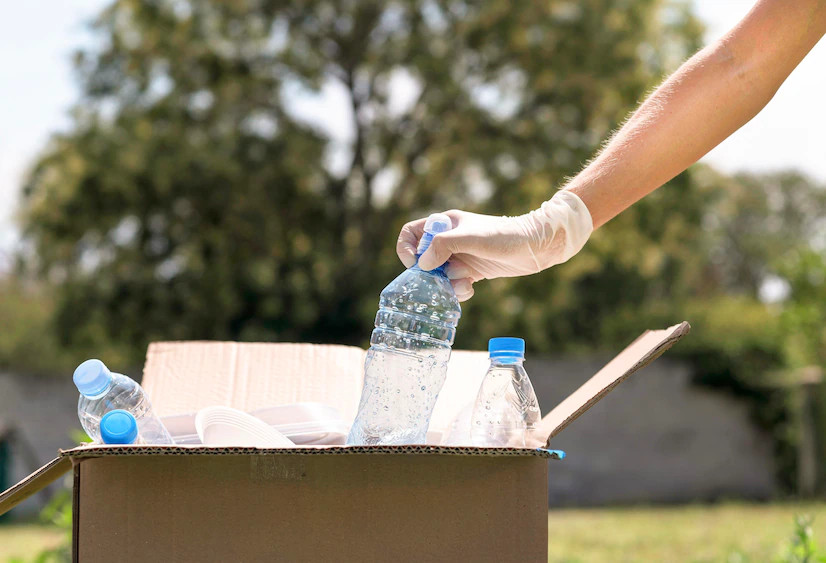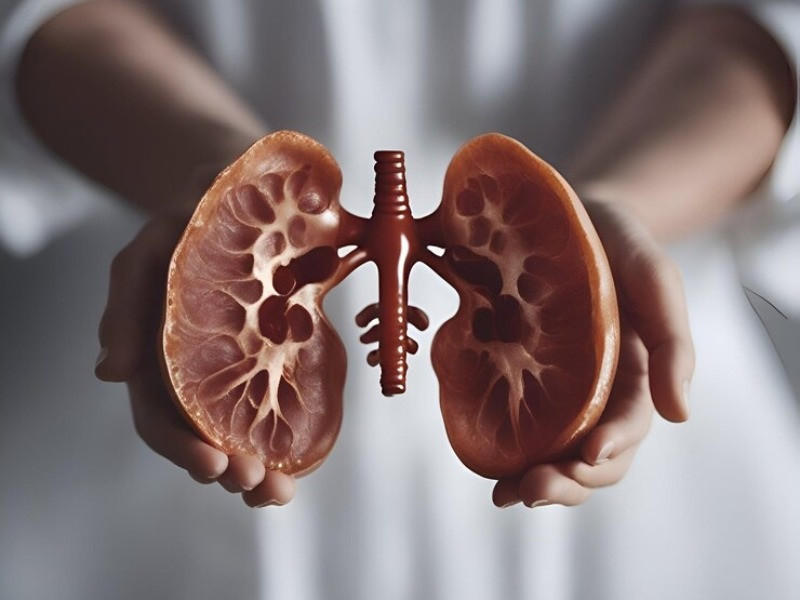The kidney is an organ located at the back of the abdomen, just below the rib cage. This organ resembles a bean and is roughly the size of a fist.
The kidneys have a complex structure and play an important role. Damage to the kidneys can cause various health problems, such as fluid buildup and swelling in the body, increased blood pressure, electrolyte disturbances, anemia, bone health problems, and acid-base imbalances. These can impair the function of other organs in the body.
Can you live with just one kidney?
In general, every human has two kidneys that filter blood and excrete urine. Even with only one kidney, you can still live. The condition is that your kidney is properly functioning and capable of performing the functions of two kidneys. It is critical that you protect the remaining kidney so that it can continue to function normally.
Several conditions make it possible to live with only one kidney, including:
Kidney donation
Individuals who donate a kidney for a kidney transplant usually live with one kidney via a nephrectomy procedure. For the donor, this procedure involves removing one healthy kidney and giving it to another person who needs a kidney transplant. People who donate their kidneys can usually live a normal life with one kidney remaining.
Kidney disease
Some people may have to undergo the removal of one kidney due to certain diseases or health conditions, such as a kidney tumor.
Renal agenesis
Renal agenesis is a congenital condition in which a baby is born with only one kidney or none at all. Children with one kidney can still live a normal life, but they are more likely to develop health issues later in life, such as high blood pressure or kidney disease. Meanwhile, fetuses without kidneys are generally unable to survive outside the uterus.
Read more: Get To Know the 5 Stages Of Kidney Failure
How to stay healthy with one kidney
kidney is an important organ for our survival. You can still live a normal life with only one kidney. However, health issues may arise in the long run, necessitating special monitoring and therapy for people who have only one kidney.
With only one kidney, you must pay special attention to your health and practice healthy living habits, such as:
- Eat a balanced diet and limit your intake of foods high in salt
- Exercise regularly to help improve heart health and blood circulation
- Maintain a healthy weight by eating a balanced diet and doing regular physical activity
- Drinking enough water as your doctor recommends to support kidney function and prevent dehydration
- Limiting alcohol consumption
- Managing blood sugar levels effectively with a healthy diet and lifestyle
- Quit smoking, as smoking can damage blood vessels and affect kidney health
- Having regular check-ups to monitor kidney function and detect early health problems that may occur
- Avoiding the use of drugs that can damage the kidneys
- Getting enough rest to help the body recover and maintain good health
- Avoiding stress
Read more: Food Recommendations To Maintain Kidney Health
When to see a doctor?
People with one kidney should have a kidney checkup at least once a year. They must also undergo tests to evaluate kidney function, which include:
- The GFR (Glomerular Filtration Rate) test measures how well the kidneys filter blood
- Creatinine test to determine the level of creatinine in blood
- Protein level test in urine
- Blood pressure check
High blood pressure can harm kidney health, so it is critical to measure and monitor it on a regular basis. If you have high blood pressure, you should see your doctor immediately.
For people living with one kidney, it is also necessary to avoid certain sports that risk causing kidney injury. Consult your doctor about the type of exercise, duration, and timing that are appropriate when you only have one kidney.
If you need medical advice or consultation, you can either visit a doctor or make use of the consultation features that are available in the Ai Care application by downloading the Ai Care application from the App Store or Play Store.
Looking for more information about other diseases? Click here!
- Sean Edbert Lim, MBBS
Cleveland Clinic (2022). Kidney. Available from: https://my.clevelandclinic.org/health/body/21824-kidney
National Institutes of Diabetes and Digestive and Kidney Disease (2018). Your Kidneys & How They Work. Available from: https://www.niddk.nih.gov/health-information/kidney-disease/kidneys-how-they-work
Healthline (2020). Living with One Kidney: What to Know. Available from: https://www.healthline.com/health/can-you-live-with-one-kidney
Sally Robertson, B.Sc. (2022). Living with One Kidney. Available from: https://www.news-medical.net/health/Living-with-One-Kidney.aspx
Cleveland Clinic (2021). Nephrectomy. Available from: https://my.clevelandclinic.org/health/treatments/21515-nephrectomy
Cleveland Clinic (2022). Renal Agenesis. Available from: https://my.clevelandclinic.org/health/diseases/24161-renal-agenesis
Medline Plus (2023). Glomerular Filtration Rate (GFR) Test. Available from: https://medlineplus.gov/lab-tests/glomerular-filtration-rate-gfr-test/










